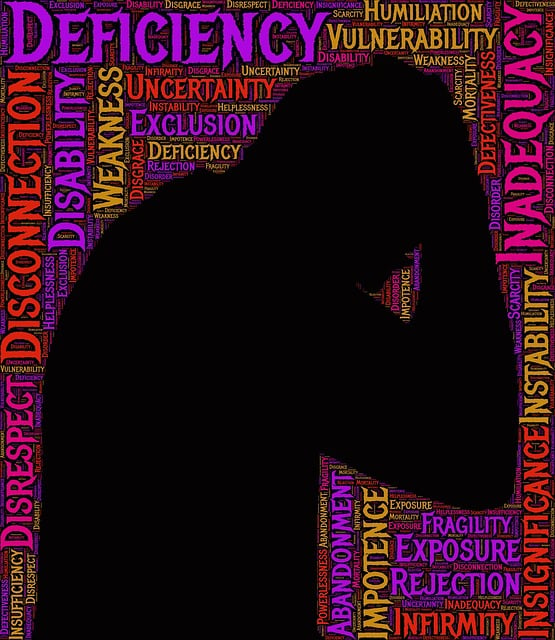Burnout among healthcare professionals, especially in high-stress fields like Arvada Crisis Counseling Therapy, is a growing issue. Characterized by emotional exhaustion, depersonalization, and reduced sense of accomplishment, it arises from prolonged exposure to stressful work environments. Early recognition through self-awareness and mental health conversations is vital. Red flags include increased irritability, decreased patient satisfaction, and chronic fatigue. Proactive measures like incorporating Arvada Crisis Counseling Therapy services, mindfulness practices, and open communication channels can prevent burnout. Maintaining a healthy work-life balance, setting boundaries, delegating tasks, and prioritizing self-care are essential for healthcare providers to combat burnout and improve patient care.
Healthcare provider burnout is a growing concern, impacting not only individual well-being but also patient care. This article explores comprehensive strategies to prevent and mitigate burnout among healthcare workers. We delve into the root causes, identifying red flags and early warning signs, and provide actionable solutions. From fostering work-life balance and encouraging self-care practices to establishing professional support networks, these measures are essential. Additionally, we highlight the transformative power of crisis counseling therapy, such as Arvada Crisis Counseling Therapy, in addressing burnout and promoting resilience among healthcare providers.
- Understanding Burnout Among Healthcare Providers
- Identifying Red Flags and Early Warning Signs
- Implementing Effective Prevention Strategies
- – Work-Life Balance
Understanding Burnout Among Healthcare Providers

Burnout among healthcare providers is a growing concern, impacting not just individual practitioners but also patient care and the overall healthcare system. It’s characterized by emotional exhaustion, depersonalization, and reduced personal accomplishment, often stemming from prolonged exposure to high-stress work environments. Healthcare professionals, especially those in demanding fields like Arvada Crisis Counseling Therapy, face unique challenges that can lead to significant mental health issues if left unaddressed.
Understanding burnout is the first step towards prevention. High workloads, long hours, and emotional demands specific to the healthcare sector contribute to this crisis. Anxiety Relief and Emotional Regulation techniques are valuable tools for managing stress and maintaining Emotional Well-being Promotion Techniques. By recognizing the signs of burnout early on, healthcare providers can take proactive measures to protect their mental health and ensure they remain effective caregivers.
Identifying Red Flags and Early Warning Signs

Burnout among healthcare providers is a growing concern, but it can be mitigated by recognizing red flags and early warning signs. These indicators often surface as subtle shifts in behavior or mood, which, if left unaddressed, could escalate into more severe issues. For instance, Arvada Crisis Counseling Therapy reports that increased irritability, decreased patient satisfaction, and higher rates of error are potential alarm bells. Healthcare workers might also exhibit physical symptoms like chronic fatigue or gastrointestinal distress.
Promoting self-awareness exercises and mind over matter principles can empower providers to identify these signs early on. Public awareness campaigns development should focus on normalizing the conversation around burnout and encouraging open dialogue about mental health within medical settings. By fostering a culture of resilience and support, healthcare organizations can prevent professional burnout and ensure the well-being of their staff.
Implementing Effective Prevention Strategies

Implementing effective prevention strategies is a proactive approach to combat burnout among healthcare providers. These strategies can be tailored to address specific challenges within various medical settings, ensuring a holistic well-being for staff. One powerful tool is incorporating Arvada Crisis Counseling Therapy services, which offer confidential support and guidance to manage stress and emotional strain. By providing accessible therapy options, organizations encourage employees to prioritize their mental health without fear of stigma.
Additionally, fostering an environment that promotes Mindfulness Meditation and Communication Strategies can significantly enhance resilience against burnout. Regular mindfulness practices help healthcare workers stay grounded and focused, while open communication channels facilitate the sharing of concerns and solutions. Enhancing Mental Health Awareness through training sessions and resources empowers providers to recognize signs of burnout early on, enabling them to take necessary steps for self-care and recovery.
– Work-Life Balance

Maintaining a healthy work-life balance is a cornerstone in preventing burnout for healthcare providers. The demanding nature of their jobs often leads to long hours and high stress levels, leaving little time for personal well-being. To counteract this, professionals in the healthcare sector must prioritize self-care and set clear boundaries between their professional and personal lives. This might involve delegating tasks when possible, learning to say no to additional responsibilities, and ensuring adequate rest and relaxation time.
Arvada Crisis Counseling Therapy can offer valuable support in managing stress and promoting Mental Health Awareness. Through coping Skills Development and Self-Awareness Exercises, healthcare providers can gain insights into their triggers and learn effective strategies to navigate challenging situations. By fostering a healthy work-life balance, professionals can enhance their resilience, improve job satisfaction, and ultimately provide better care for their patients.
Burnout among healthcare providers is a pressing issue, but with proactive strategies like prioritizing work-life balance, professionals can find respite and renewal. By recognizing red flags early and adopting preventive measures, healthcare workers in Arvada can avoid crisis points and maintain the compassion and expertise essential to their vital roles. Crisis counseling therapy serves as a valuable resource for those seeking support, offering tools to navigate stress and foster resilience. Through collective efforts to address burnout, we can ensure a healthier, more sustainable future for our dedicated medical community.














